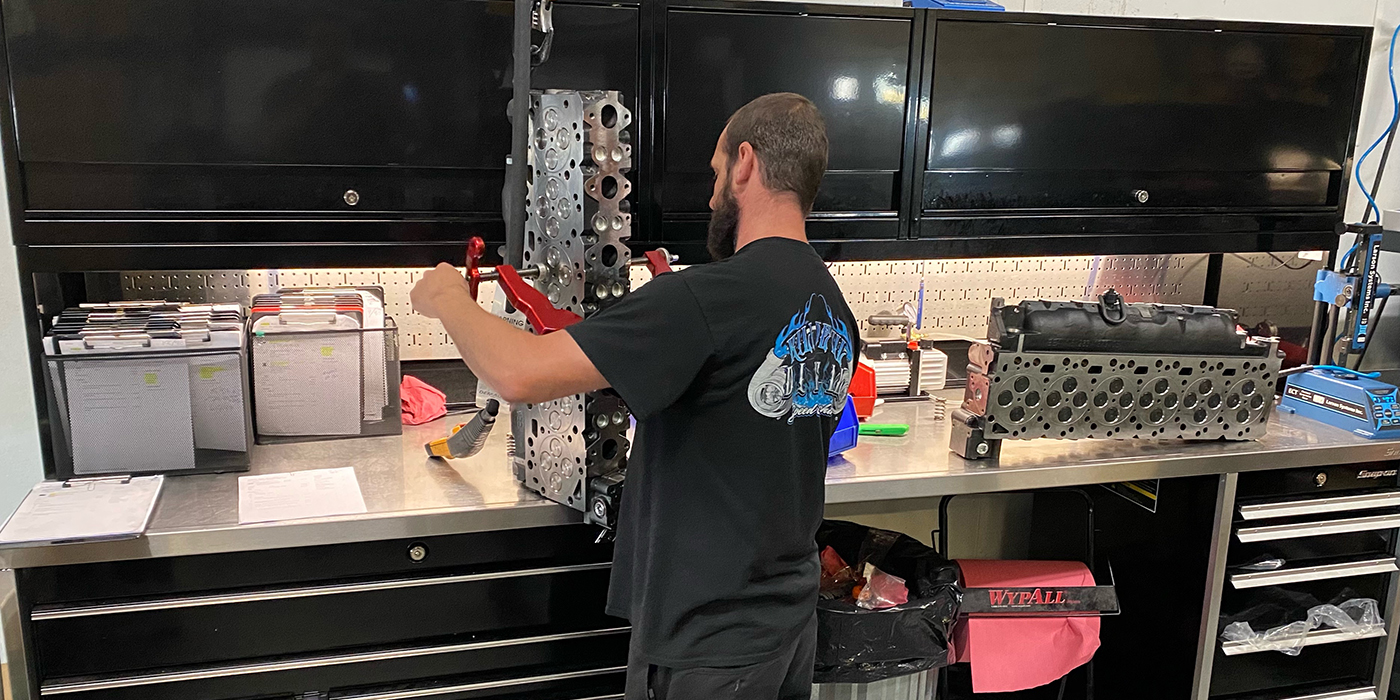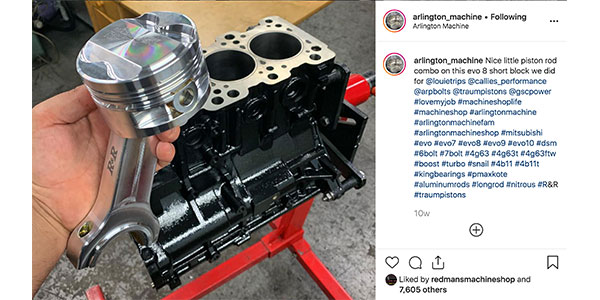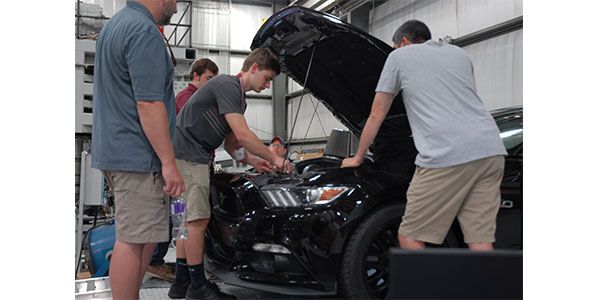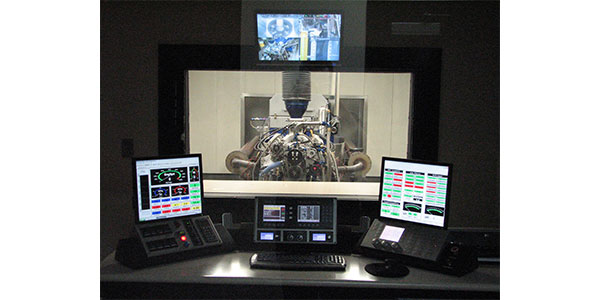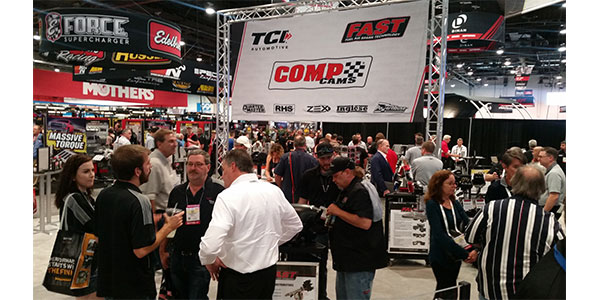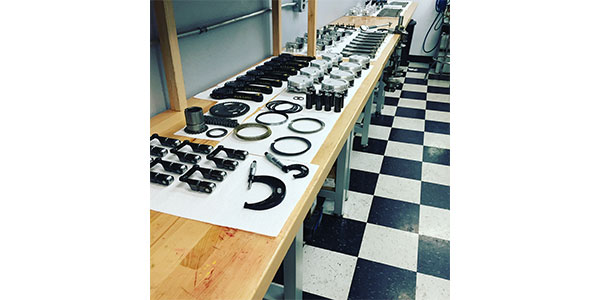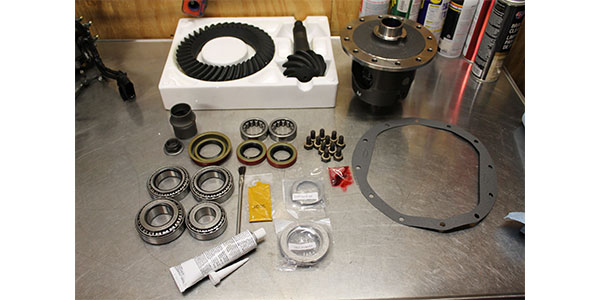How to shop for and finance equipment in today’s economy
This is a question that often comes up in any shop:
How can I afford new equipment?
Well to answer this, first I talked to Steve Morgan, a senior relationship manager at Univest Capital, a company that specializes in equipment financing. Steve actually sold engine rebuilding equipment for about six years and has been on the financing side of it for the past 33 years. We’ve talked to Steve before and much of what he’s said still rings true.
“I’d like to think I know a thing or two about the industry, and more importantly, about the customer’s needs and wants and issues,” Morgan says. “I deal with not only the equipment salesmen, but more so the engine rebuilder and machine shop owner trying to find solutions to put together financing for the equipment they need. My bread and butter is everything from a valve facer to a million-dollar CNC machine.”
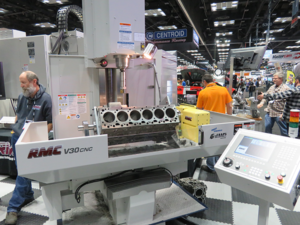
Morgan says, “I know a lot of folks who want to pay cash, rather than have another payment. That’s all well and good, but why tie up all your money when you don’t have to? It would be wise to keep some of that cash on hand as working capital and finance the rest. That way, if something comes up, you won’t be so strapped. Take the interest off your taxes as a business expense.”
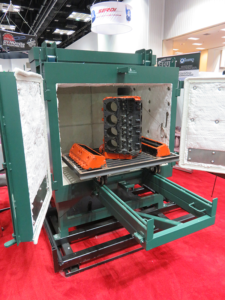
He also suggested the use of the Section 179 tax benefit while it lasts. What is this deduction (in case you haven’t been paying as close attention as you should)? As part of the IRS Tax Code, Section 179 allows businesses to deduct the full purchase price of certain assets financed or leased and put into service during 2018 (here’s the obligatory disclaimer: always consult with your tax advisor on how you can use equipment financing to take advantage of the Section 179 tax savings or visit www.irs.gov for additional information. Section 179 deductions are not automatic and qualifying taxpayers who want to take advantage of the deduction must elect to do so on Form 4562. For Section 179, eligible property must be acquired for use in the active conduct of your business and must be put in use by December 31, 2018 to qualify. Other rules and limitations may also apply).
Accelerating depreciation rather than spreading the deduction over the item’s useful life provides a larger tax deduction.
- Covers new and used equipment/software/furniture
- Maximum deduction limit for 2018 is $500,000
Take advantage of Section 179 now to significantly reduce the true cost of ownership. If you are considering acquiring new equipment in the near future, this deduction could have a significant impact on the effective after-tax cost of the equipment if you utilize Section 179.
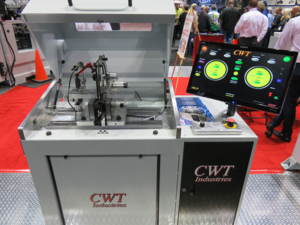 Steve also noted that interest rates are ticking up and now might be a great time to lock in a good rate. Get pre-approved prior to tradeshows so you can get the best deal along with show specials knowing your financing is in place. You might have a good idea of what equipment you want to buy, and then get to the show and see something new and cool that captures your imagination. By checking out equipment and kicking the tires at a show, it allows for an almost immediate comparison of your options. This can help eliminate any potential buyer’s remorse down the road, too.
Steve also noted that interest rates are ticking up and now might be a great time to lock in a good rate. Get pre-approved prior to tradeshows so you can get the best deal along with show specials knowing your financing is in place. You might have a good idea of what equipment you want to buy, and then get to the show and see something new and cool that captures your imagination. By checking out equipment and kicking the tires at a show, it allows for an almost immediate comparison of your options. This can help eliminate any potential buyer’s remorse down the road, too.
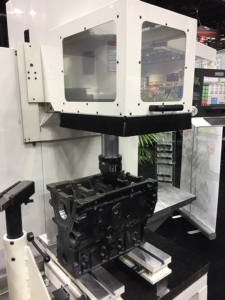
Steve’s company (Univest Capital, Inc. is a subsidiary of Univest Bank and Trust Co. Equal Opportunity Lender) is the only one that I know of that can give you a loan listed as “working capital” and not just an equipment loan. That way, when you find what you want, you write a check for it and just make a payment on the working capital loan.
They also have the ability to construct whatever deal may be needed to fit a special situation. They terms usually are from one to seven years and the details can be as varied as the people they’re loaned to.
Whether or not you choose to travel to a show, shop around, and possibly purchase, if you deal with a reputable company and salesperson, they will almost always stand behind what they sell, this is one reason that Steve and his group are able to offer such generous conditions. But don’t forget that the equipment manufacturers often can help get you the financing you’re looking for, too.
A representative for an equipment supplier explains that financing will in fact help the shop owners increase their productivity with new equipment and not have to lay out a large amount of capital to upgrade their shops.
As you know, a good, solid, well cared for piece of equipment can last a lot longer than the guys running it. In fact, when I went to school for machining, much of the college’s equipment was older than the instructors, and STILL worked like a champ.
So, choose wisely. A Midwest sales representative recommends: “If you are just opening a machine shop, start smart. Start with what you know, what’s going to make you money, and what you can afford. Remember you still have the unexpected consumable parts and repair parts to purchase. Then slowly expand and as you can afford it, buy more equipment. The biggest mistake most owners make is buying more than they can afford.”
Though technology is changing on practically a daily basis, some sales reps say that when purchasing equipment, new isn’t always the answer. There is still some good quality, used equipment out in various machine shops and from automotive equipment sales reps. But if you’re looking used, always be sure when purchasing that you have seen the machine in operation, know the age of the machine, know if repair parts are available, and what tooling is being sold with the machine.
Engine Builder columnist Dave Monyhan, who writes our Machine Maintenance column, explains, “Banks are the go-to for cash flow and property purchases, however there are equipment leasing companies that specialize in financing of machine shop equipment as well as shop supplies and tooling. I would always encourage the shop owner to weigh all resources first so that needed lines of credit are not compromised into payment plans for new machines and tooling.”
I agree with Dave: don’t get so over-extended that you can’t afford to buy the daily supplies needed in the shop. It’s a balance, and steps should be taken to maintain that financial balance.
Helping maintain that balance, Steve Morgan says that most people do not pay off their equipment early, but prefer to use money on hand to buy and finance even more equipment and supplies. That’s when dealing with experienced professionals really pays off. This way you can expand the business and allow for more income; a snowball effect.
My advice is to shop around for what you need and have a good idea of what you want. Experienced reps can help you decide what’s best for your situation and help you get the best deal. Getting your financing in place before traveling to a show or deciding on a purchase will help, too. Talk to your lender about your situation: you might be in a better position than you think. 



